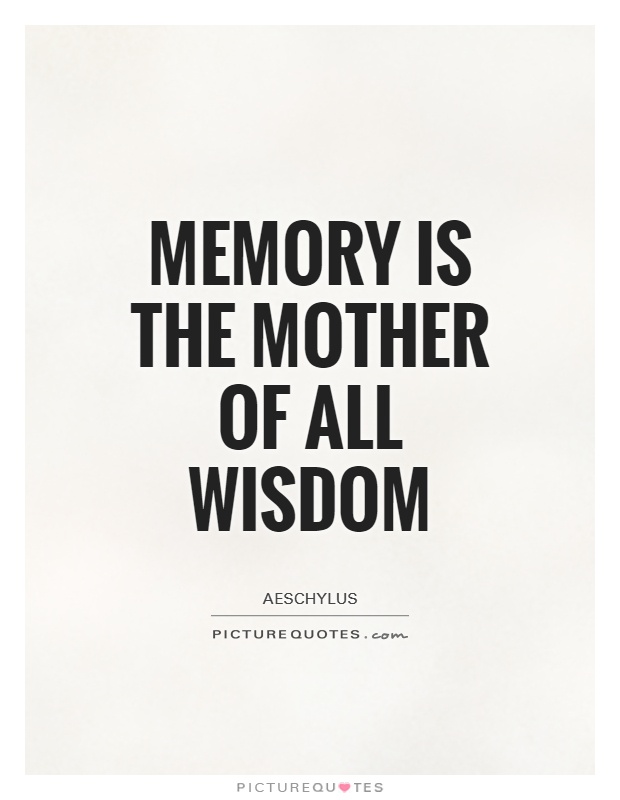Memory is the mother of all wisdom

Memory is the mother of all wisdom
In the context of Aeschylus, the quote "Memory is the mother of all wisdom" holds significant meaning. Aeschylus, one of the great tragedians of ancient Greece, was known for his profound insights into the human condition and the complexities of life. His plays often explored themes of fate, justice, and the consequences of human actions. In many of his works, memory played a crucial role in shaping the characters' understanding of themselves and the world around them.Memory, in the context of Aeschylus, is not just about recalling past events or experiences. It is about the deep understanding and reflection that comes from remembering and learning from those experiences. Memory is the repository of all our past knowledge, emotions, and experiences, and it shapes our present actions and decisions. In Aeschylus' plays, characters often grapple with the weight of their memories, whether it be the guilt of past sins, the pain of lost loved ones, or the lessons learned from past mistakes.
One of Aeschylus' most famous works, "The Oresteia," is a trilogy of plays that explores the cycle of violence and revenge in the House of Atreus. The central theme of the trilogy is the concept of justice and the consequences of bloodshed. Memory plays a crucial role in the characters' understanding of justice and the need for reconciliation. The Furies, ancient goddesses of vengeance, represent the relentless power of memory and the need for justice to be served.












 Friendship Quotes
Friendship Quotes Love Quotes
Love Quotes Life Quotes
Life Quotes Funny Quotes
Funny Quotes Motivational Quotes
Motivational Quotes Inspirational Quotes
Inspirational Quotes